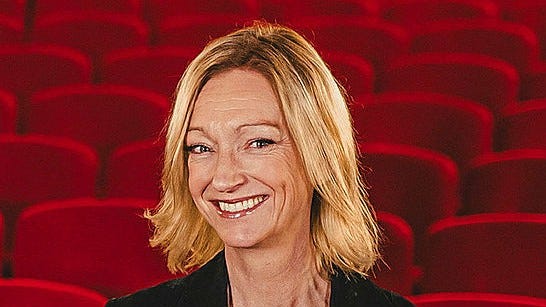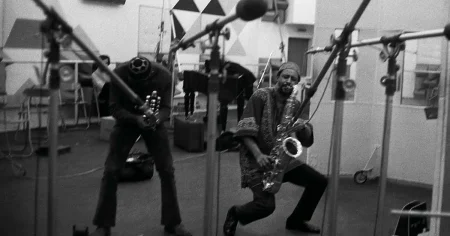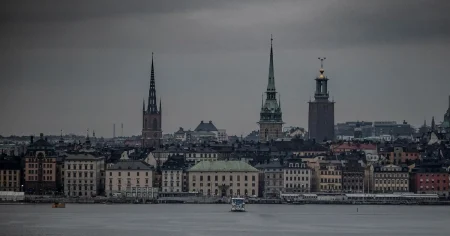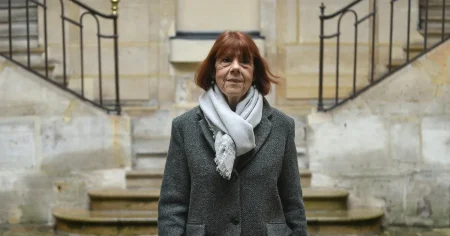Pia Lundberg, the director of the Gothenburg Film Festival, has curated a diverse and impactful program for this year’s edition, showcasing 270 films from 83 countries, ranging from lighthearted comedies to critically acclaimed Oscar contenders. The festival serves as a crucial platform for films that might not otherwise find distribution in Sweden, with 25 films having their world premiere at the event. Lundberg has emphasized the festival’s focus on ”disobedience,” featuring films that explore themes of civil resistance and defiance. This thematic choice reflects her belief in the power of cinema to inspire positive change in a turbulent world, offering a message of hope and empowerment to audiences. This year’s honorary awards will be presented to Thomas Vinterberg and Julie Delpy, two prominent figures in international cinema, recognizing their significant contributions to the art form.
A significant challenge for any film festival, including Gothenburg’s, is securing adequate funding. Despite strong audience engagement, with the average attendee watching an impressive 11.7 films during the festival, attracting private financial support has become increasingly difficult, especially in the post-pandemic era. Lundberg highlights the lack of a comprehensive film policy in Sweden that fully recognizes the vital role festivals play in promoting both new Swedish cinema and the overall cinematic experience. While financial constraints are a primary concern in some regions, in others, the struggle for artistic freedom and freedom of expression presents a far more daunting obstacle.
Lundberg’s long-term vision for the Gothenburg Film Festival is to foster an environment that blends entertainment with social relevance. She aims to create a vibrant hub where film screenings, discussions, parties, and interactions with filmmakers converge, facilitating the exchange of ideas and perspectives. Central to this vision is the recognition of film’s immense power to influence and shape society, showcasing films that challenge conventional thinking and spark meaningful dialogue. The festival aims to be a space for discovery, where audiences can engage with diverse cinematic voices and explore new narratives.
The resilience of filmmakers and production companies in the face of economic adversity is a particularly encouraging trend in the contemporary film landscape. Despite challenges posed by economic downturns, inflation, and global instability, the industry continues to produce bold, innovative, and captivating films, both in Sweden and internationally. This dedication to creative expression in challenging times deserves recognition and celebration, demonstrating the enduring power of storytelling to transcend circumstances.
Among the must-see films at this year’s festival, Lundberg recommends Mohammad Rasoulof’s ”The Holy Spider,” a poignant and unsettling portrayal of a family’s disintegration against the backdrop of the Woman, Life, Freedom revolution in Iran. This film captures the intensity and profound impact of the popular uprising, offering a powerful glimpse into the lives of those affected by the political turmoil. Another recommendation is Payal Kapadia’s ”All We Imagine As Light,” a critically acclaimed and poetic debut film exploring the lives of two young women yearning for freedom in Mumbai. Finally, Lundberg encourages attendees to experience the festival’s short film programs, including ”Startsladden,” which showcase a dynamic collection of cutting-edge and inspiring short-form narratives.
Over the years, the Gothenburg Film Festival has been a source of countless memorable moments for Lundberg. One particularly vivid recollection involves a Finnish celebration held in a Gothenburg courtyard, complete with bonfires and copious amounts of Koskenkorva, a traditional Finnish vodka, amidst freezing temperatures. This jovial gathering seamlessly transitioned into an impromptu after-party in a hotel room, packed with members of the Nordic film industry, sparking conversations and collaborations that ultimately shaped the future of filmmaking in the region. These unscripted moments of connection and collaboration underscore the festival’s role as a catalyst for creative partnerships and industry growth.














